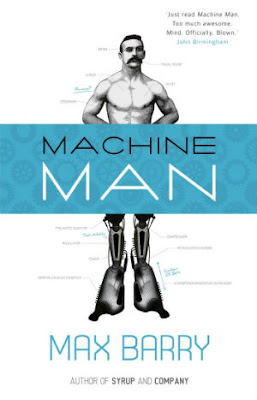Bon nuit.
Feeling tapped, as of late. It's that time of year wherein Minnesota flips a switch and we abruptly change from the heat and humidity of summer to the cool, crisp air of autumn. It seems to have happened just over night, in a jarring transition the affects the mind and body. Everyone I know is just a bit more tired, struggling just a bit more to pull themselves from the comfort of bed in what are now dark mornings. I can still (barely) force myself to get up and run before work, which is a shot of adrenaline that gives a slow-burn of energy for the day. The side effect, though, is it leaves me feeling a bit detached. As I walk to my bus stop in uptown I have to force myself to gear up for facing the masses of people, my quiet life shaken from it's peaceful start. So I turn to alienated and alienating music.
A song that's always helped me cope with this sense of detachment from crowds is 'Glass Danse' by new wave band The Faint. A neighbor of mine in college who really had me pegged but never socialized enough (or maybe I didn't reach out enough) included it on a fantastic homemade compilation album. It was called "When the Committee Meets at Your House" and it had some amazing homemade artwork I've never gotten around to scanning. Mark was a real hep cat, a guy who made me appreciate some of the more subtle aspects of city living. I wish I hadn't fallen out of touch with him. I was a different person back then, almost a full decade ago. I had much less social nuance and tact, and I was most likely an obnoxious college student. He was very patient and polite, and had great taste in music. His compilation turned me on to the Mountain Goats and Jacques Dutronc and Bonnie Prince Billie. Still, of all the songs, Glass Danse, from the album Danse Macabre, was my favorite.
I think maybe he saw it as touching on my inner isolation, or his. Who knows. I just knew it was a funky dance number at the time, a buzzing little number with teeth that sounded phenomenal when you cranked it up. Now, as I listen to the lyrics through headphones on the bus, surrounded by people I don't speak with or even make eye contact, I think maybe he sensed I would grow up into a more reserved version of myself. The icy cold detachment in the lyrics is the epitome of Minnesota (n)ice, our polite surface being a form of keeping the world at arm's length. I'm glad I still have the homemade compilation with his handmade artwork - I just wish I was still in contact with him. He was cool.
Feeling tapped, as of late. It's that time of year wherein Minnesota flips a switch and we abruptly change from the heat and humidity of summer to the cool, crisp air of autumn. It seems to have happened just over night, in a jarring transition the affects the mind and body. Everyone I know is just a bit more tired, struggling just a bit more to pull themselves from the comfort of bed in what are now dark mornings. I can still (barely) force myself to get up and run before work, which is a shot of adrenaline that gives a slow-burn of energy for the day. The side effect, though, is it leaves me feeling a bit detached. As I walk to my bus stop in uptown I have to force myself to gear up for facing the masses of people, my quiet life shaken from it's peaceful start. So I turn to alienated and alienating music.
A song that's always helped me cope with this sense of detachment from crowds is 'Glass Danse' by new wave band The Faint. A neighbor of mine in college who really had me pegged but never socialized enough (or maybe I didn't reach out enough) included it on a fantastic homemade compilation album. It was called "When the Committee Meets at Your House" and it had some amazing homemade artwork I've never gotten around to scanning. Mark was a real hep cat, a guy who made me appreciate some of the more subtle aspects of city living. I wish I hadn't fallen out of touch with him. I was a different person back then, almost a full decade ago. I had much less social nuance and tact, and I was most likely an obnoxious college student. He was very patient and polite, and had great taste in music. His compilation turned me on to the Mountain Goats and Jacques Dutronc and Bonnie Prince Billie. Still, of all the songs, Glass Danse, from the album Danse Macabre, was my favorite.
I think maybe he saw it as touching on my inner isolation, or his. Who knows. I just knew it was a funky dance number at the time, a buzzing little number with teeth that sounded phenomenal when you cranked it up. Now, as I listen to the lyrics through headphones on the bus, surrounded by people I don't speak with or even make eye contact, I think maybe he sensed I would grow up into a more reserved version of myself. The icy cold detachment in the lyrics is the epitome of Minnesota (n)ice, our polite surface being a form of keeping the world at arm's length. I'm glad I still have the homemade compilation with his handmade artwork - I just wish I was still in contact with him. He was cool.



































